- Home
- Hugh Howey
The Plagiarist Page 3
The Plagiarist Read online
Page 3
“Damn,” Samualson said, seeing the crowd. “Is there a rally tonight?” He glanced over at the scheduling board where groups signed out clusters of terminals for virtual meetings. One of the bigger groups on campus was the cycling club, a habit more loathsome than jerking off in Adam’s opinion. These people actually simmed bicycle riding. They spent their time on foreign worlds, riding bikes, their brains flooded with endorphins from simulated exhaustion. Adam could always sense when he was interfacing right after a cyclist. The seat would remain warm for hours, the stench of sleep-sweat in the air. It was disgusting. The fact that most of them were grossly overweight didn’t help.
“There’s two over in that corner,” Samualson said.
Adam flipped his backpack around and dug for his temple patches. He followed his friend through the busy room.
“What’re you searching after tonight?” Samualson asked. He sat down in front of one of the terminals and squeezed gel from a tube and onto his finger. “That elusive Shakespeare?”
Adam laughed. “I’ve given up on finding him.” He plugged his temple patches into a pair of cords dangling from outlets on the wall. “There’ll never be another Bard of Avon.”
“That children’s series you picked up last year seems to be doing pretty well.” He dabbed gel onto his temples, checking the placement in the small circular mirror mounted on the wall in front of him. Adam did the same; they looked like performers getting ready for a show, an apt illusion.
“That series is drivel,” Adam said. He smiled at his friend’s reflection. “Don’t get me wrong, the royalties are good, but I’d rather have the hours back I spent memorizing them.”
“Or the brain cells.”
Both men laughed as they began pressing the interface pads into the dabs of gel. Adam tried to ignore the blue crescents under his eyes as he secured the connection. Sleep had become as virtual, as ephemeral, as his work.
“So whatcha after, then?” Samualson wouldn’t leave the line of questioning alone. The machines at their feet hummed to life, leaving thick seconds to fill with banter.
“I’m dabbling in art, actually.” He glanced at Samualson and hoped the shame of the lie would adequately mimic the shame of the truth he was hiding.
“Art?” His friend chuckled softly as he pressed the pads to his temples. “Good luck with that.”
“It’s all luck,” Adam admitted. “Are you still working on that same protein?”
Samualson flipped open a pad of paper and touched a pen to his tongue, a nervous tic more than a functional act. The woman interfaced on the other side of him twitched, her head leaping up from her folded arms then crashing back down again. “Yup,” Samualson said. He slid pages up the spiral bound pad to find his place. Adam saw line after line of four letters repeated: CTTGACATGCA… It seemed like mind-numbing work. He imagined his friend peering into a virtual microscope, or cyclotron, or whatever biologists used, and memorizing a few hundred letters at a time—jacking out—writing them down—jacking back in. It gave Adam a headache just thinking about it and made him appreciate his own work. If they transcribed a few letters the wrong way, a cure for liver cancer might instead turn a poor kid into a glow stick. If Adam got a word or two wrong, nobody knew or really cared. Unlike his brief haiku, the sheer mass of a full length piece of writing could absorb a handful of mistakes.
The machine at Adam’s feet beeped, letting him know he had a connection to the school’s server farm. Adam liked that it was called a “farm.” He smiled at the thought of worlds springing up from plowed rows of dirt, cloudlike shrouds unwrapping to reveal blue and spiral-green planets of life. The word farm, of course, was a holdover from the clusters of computers, the server farms, used at places like Pixar, where virtual worlds were created for entertainment. It took a while before the productive uses of such worlds were understood. Once they were, the result was often referred to as the third great agricultural revolution. Sim farms, in just the last decade, had sprouted all over the place. Government owned, university owned, even a few private ones. The flood of research from these farms drowned out all the work done in the real world. A theory would be published in the morning and overturned by mid-afternoon. Planetary formation and plate tectonics; punctuated equilibrium and mass extinctions; arsenic-based lifeforms and exoskeletons. If you weren’t jacked in, you weren’t playing.
Science became exciting again overnight. It moved to the forefront much like the days of the great space race in the previous century. Everyone wanted the red blisters on their temples from too much virtual time—the badges of important work being made. Universities and even high schools changed tack overnight, catering to the surge in computer science and math majors. The hard stuff dominated the soft sciences, and the liberal arts soon clamored for a place on campus. This scientific renaissance lasted three years—and then there was Dylan Pyle to restore order.
Adam’s temples began to heat up as the interface computer booted. His thoughts turned to Dylan Pyle as the connection took hold.
Eight years ago, nobody had ever heard of Dylan, nor should they have ever. A biology research assistant with dim prospects, Dylan transformed overnight into the greatest living author of all time. His debut novel, Whispering to Ghosts, won every award it qualified for, and some that were marginal. He followed it up with a crime novel that re-wrote all the rules, and then came a young adult tome as successful as it was massive. The only thing more surprising than this young man’s mix of prolificacy and talent was his refusal to take his writing career seriously. “I dabble,” he would say in rare interviews. “I’m a scribbler, nothing more.” The reticence to accept his talent, the reclusiveness, the desire to stay on as a humble research assistant, to pour himself into his lab work, it all served to heighten his fame. The glass bubble around him survived three years of awe and praise. It shattered when a fellow researcher discovered Dylan’s secret: the boy had a single talent, one of near-photographic memory. He was found in one of his research worlds reading a novel in a park and committing the prose to memory. Selecting from the top writers of several worlds, he had translated their genius into his own, word for word, colon for colon.
Adam felt a tingle at the base of his skull, then a buzz like electric zippers pulling back over his crown; his skull seemed to split in half. He shivered with the out-of-body experience, the sense of his self floating out the top of his head before it was sucked back into his gut. He grunted, heard an utterance by Samualson get cut off by the transfer, and then he was gone. He was joining the legions of plagiarists who had followed in Dylan Pyle’s wake, soaring down to artificial worlds, scraping them dry of their great art before the scientists were otherwise done with them.
There should have been an uproar, Adam thought. There should have been controversy over what Pyle had done. There should have been outrage. Those would have been normal human responses to having been duped. But a stronger impulse seized the popular imagination: the ability to be great overnight. It was a new type of lottery, one where fame and talent were won rather than simple money. The heyday of the sciences came to a sudden close. Discoveries were still made, of course. Real progress was won in astrophysics, biology, psychology, and other fields. But suddenly, the science wings and computer science centers were overrun with talentless hipsters who thought they had an eye for genius. Courses on memorization were invented. Adderall replaced coffee as the recreational drug of choice. Server farms groaned under the stress. Temples were seared. Tubes of adhesive gel were rolled dry.
The Anti-Renaissance ensued. As Adam logged into his account, he shivered at the memory of it. Hell, he was still living it. The outpouring of stuff, of crap, was so intense, nothing could be seen or heard. The variety and quantity were too much. It was a repeat of what YouFilm did to cinema, what AutoTune did to the music industry, what genetic splicing had done to sports. The bar wasn’t raised so much as buried under the pile of crap.
And offline talent, actual talent, rebelled. Farms were attacked,
physically, by supposed bands of marginal musicians and writers. The artists and the avant garde became the new bomb-chuckers. And meanwhile, consumers were pulling away from it all, paralyzed by the sudden confusion of too much choice and novelty. Entire industries suffered.
The interface lab fully dissolved, and an entire universe of simmed worlds appeared before Adam. Here is where he would’ve, a year ago, agonized over the choices available to him. So many worlds full of so many pages of written words, all of them open to his perusal. But it had been a long time since he’d really chosen. He was now more an automaton than the sims he lived among. He moved his virtual self, shifted his awareness, and went to select the planet where his loved one resided—
And that’s when Adam Griffey saw the deletion notice hovering above the planet.
6
It may be erased,
all that is written. Destroyed,
all that’s created.
The deletion notice loomed massive over Hammond. Large white numbers on a red background flicked as they slowly counted down the planet’s final moments. Adam felt his real stomach drop, back on Earth. He felt all the emotions of shock and rage and sadness, even as he floated bodiless through the void. His plans for the night were over. His plans for the week were over. He didn’t have any plans else. Adam’s existence had suddenly become as vapid as this simulated consciousness in the black. He was death.
As he floated closer to the planet, he saw that there were just over two hours left, sim time. Two hours for Belatrix to live and breathe. Two hours for him to do nothing for her. It was around eleven thirty when he’d logged on, so the deletion must be slated for midnight, Earth time. The end of the day. The end of all days for the people of Hammond.
Adam had a sudden and strange urge to log out and tell Samualson, to let him know that this was the reason for the packed interface room. It was Hammond. He imagined the remote access groups would be going nuts as well, logging on from universities and access points all over Earth. It would be a free-for-all, grabbing what data they could, performing wild experiments that would break the suspension of disbelief for the planet’s inhabitants. Adam had watched from a distance once while meteors rained down on a planet where lived some decent playwrights. He hadn’t even had time to finish memorizing a work he’d been in the middle of, one with quite a bit of potential. That play took up half a notebook in his apartment; the too-hopeful idea was that he’d finish it himself one day.
Despondent and not knowing what to do, Adam drilled into the countdown’s menu to look for the slated reason for the planet’s deletion. It made no sense to log off and tell Samualson; his friend would see for himself, or he’d find out later. Besides, he suspected there was some other reason he wanted to log off. He felt as if he were dangerously close to coming clean about his affair. He had the urge to make Belatrix real by dragging her name back to his planet; he wanted to yell and scream at someone to not do it, to call off the erasure.
Adam felt all this—he felt anxious and desperate as he continued to drift ever nearer to Hammond. The truth of it began to fully set in. The woman he loved, virtual or not, would cease to exist in two hours. She’d be gone forever. She had been diagnosed with something terminal and sudden.
Adam read the deletion report:
With the advent of their own simmed worlds, planet Hammond has placed undue stress on our server farms. Planetology research will be suspended, to be resumed once the world re-accretes around the star Beatrice Bondeamu Gilbert III, as per the Astronomy department’s request. All sociological studies will be terminated forthwith. Deletion is slated for midnight, February 21st, 2022.
Adam’s dimensionless body sped past the message, his mind absorbing it numbly as he went. Why did they have to delete the entire planet? Why not destroy the server farms on Hammond? Why not just delete those? They can rebuild a planet, but not the people. The people would be different. Their writing would be different. Their food and names and language would be different. Their bookstores and the people who worked there would be different.
Adam didn’t want different.
He slid into his usual avatar with the shiver of numbness turning to sensation, like new skin pulled over unfeeling muscle. The clouds of Hammond parted as Adam chose his arrival destination; bright sunlight winked out, replaced by the dark interior of the bookstore’s bathroom. Adam fumbled for the light, then the doorknob. They were in the same place as before, but it took him a moment. He had become uncentered from himself. As he stepped out into the smell of fresh pulp and horseshit tea, the tiled floor below him seemed closer than it should be. His mind was spinning; he wondered what he would say, what he was even doing here. His shameful and wonderful trysts were over. His love was gone. He wouldn’t have to think of anything to tell his mother. He wouldn’t have to worry about his father spinning in his grave, or his sister finding out and being humiliated for him. He didn’t have to lie to Amanda or Samualson. He didn’t have to burn with embarrassment under the unknowing glare of his students.
As he weaved through the stacks of books, Adam became dizzy with all the implications and outcomes. He wanted none of it, not even the relief from this burden. He would gladly lie for another year, another month, another week, just one more day. At least a full day to process it. A day to sit in the park with Belatrix and break the news, maybe even let her think he was crazy. There was so much of her world she had never seen, places Adam had flown over, invisible, and wanted to take her. He hurried down the line of registers, looking for her. She wasn’t there. Where were the customers? There was a commotion outside. Adam looked past the displays of bestsellers, through the glass, and saw that the cars in the street were at a standstill. Horns blared in the distance. Someone was screaming, the voice muted. Adam whirled around and realized he was the only one in the store. Him and a single cashier, who was emptying the register and stuffing his pants. Adam didn’t recognize him; he was pretty sure he didn’t work there.
“Where is everyone?” Adam asked the man.
“Fuck off! These are mine.”
The man moved to another register and began pounding buttons. Fans of colorful bills flopped above his belt. A car roared outside, pulled up on the sidewalk and rumbled by, scattering screaming pedestrians. Adam watched it squeal out of sight, then he pushed the glass doors open and hurried outside.
“There’s another one!” someone screamed. The crowd moved as one, heads turning to follow an angled arm and a pointing finger. Eyes were shielded against the midday glare. Adam turned and looked up as well. A massive flying saucer rumbled overhead, ridiculous lights splaying out of it. The thunder of explosions grumbled in the distance, sending shivers of panic through the crowd. Adam couldn’t believe it. Of all the sociological experiments to level on the Southwest continent, an alien invasion had to be the dumbest he could think of. What was the point? How had this request won out? Unless it was for some professor’s amusement. He pushed his way through the crowd toward Belatrix’s apartment, thankful they hadn’t picked a flood or meteor impact for the area. He spotted a few other researchers in the crowd, their remote access icons blinking visibly—to Adam at least—above their heads. One icon sported University of Miami colors, another was a generic deep red that could’ve been from dozens of schools. They seemed enraptured by the panicked crush of people. Adam made sure they weren’t looking and broke all rules by teleporting his avatar out of the packed streets. He appeared above Hammond for just a moment, then zipped to the apartment hallway, saving himself the walk. An elderly couple was staggering down the hall, clutching to one another. They gasped at the sudden presence of Adam, materializing out of nowhere. He ignored them and pounded on Belatrix’s door.
“Bela, open up.”
He heard something squeak inside the room, like a tight drawer being pushed shut.
“Who is it?”
“It’s me. Open up.”
The knob jumped; the door flew open. Belatrix stood there, hair veiling her face
in loose wisps, her eyes wide.
“How did you get here so fast?” she asked.
Adam moved inside the apartment, his hands on her shoulders. She was trembling.
“I hurried right over.”
“I just talked to you,” she said. “You were at work.”
Adam wasn’t sure what his avatar had been doing before he arrived to borrow it. He rarely knew.
“I was already on my way. You called my portable, remember?”
Belatrix scrunched up her face, swiped the hair off her eyes and tucked it behind her ear. “I must be confused. It’s— The world has gone nuts. What’re we gonna do? What’s happening?”
She looked toward the windows. Adam noticed the blinds had been drawn. Why was he lying to her about how he got to her apartment? What good did that do? Didn’t he come there planning on telling her the truth? What good would that do? Was it better for her to go without knowing, to die thinking that she was real—?
Die. Why did he keep thinking about it like that? Deleted. She didn’t exist. None of this was real. He had to fight to remind himself of that.
“Honey? Are you okay?” Belatrix put a hand on his chest, another around his waist. Adam realized he probably looked worse than she did. What was really about to happen to her planet was far more sinister, more permanent, more real than anything she could dread from the fake flying saucers.
“I have to tell you something,” he said, even though he didn’t yet know what he wanted to say.
There was an explosion outside; the windows rattled, then the vibrations could be felt in the floor. The building was swaying. Adam had never been on the ground level of a deletion before. It was terrifying and authentic. He couldn’t believe how real it felt. Raw terror coursed up through him as he lost his center yet again. He had a brief pang of doubt that this world was real and that he was about to die. Perhaps his life at the university was some sort of delusion, and he really worked at Telematics Express on Hammond, selling accounts to—

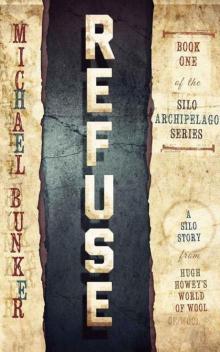 Refuse (The Silo Archipelago Series Book 1)
Refuse (The Silo Archipelago Series Book 1)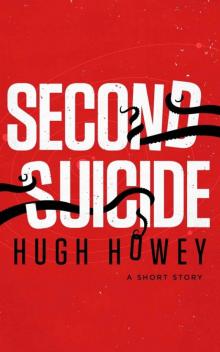 Second Suicide: A Short Story
Second Suicide: A Short Story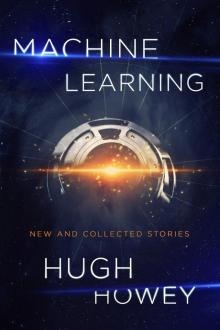 Machine Learning: New and Collected Stories
Machine Learning: New and Collected Stories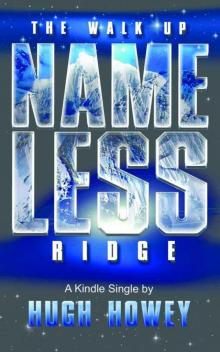 The Walk Up Nameless Ridge
The Walk Up Nameless Ridge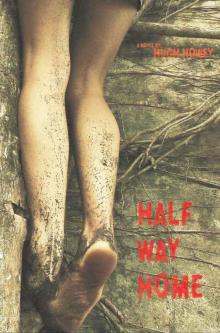 Half Way Home
Half Way Home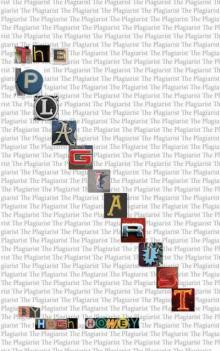 The Plagiarist
The Plagiarist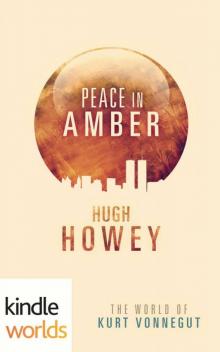 Peace in Amber
Peace in Amber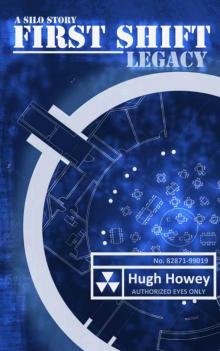 First Shift: Legacy
First Shift: Legacy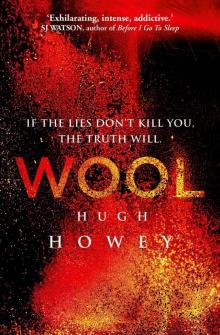 Wool
Wool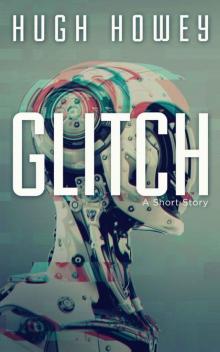 Glitch
Glitch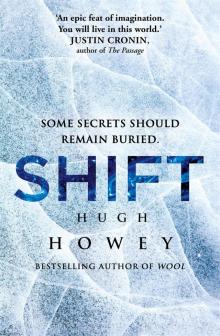 Shift
Shift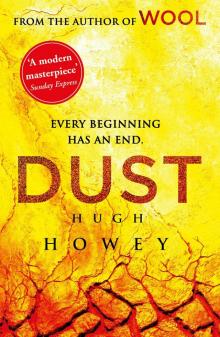 Dust
Dust Molly Fyde and the Land of Light
Molly Fyde and the Land of Light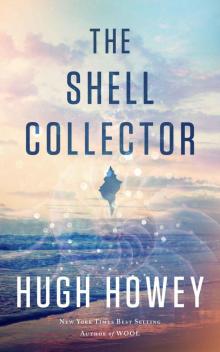 The Shell Collector
The Shell Collector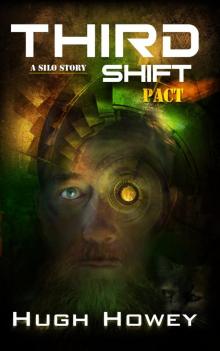 Third Shift: Pact
Third Shift: Pact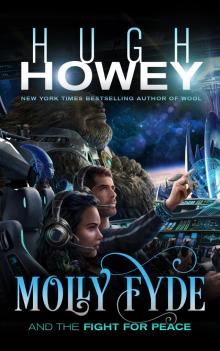 Molly Fyde and the Fight for Peace
Molly Fyde and the Fight for Peace Sand Omnibus
Sand Omnibus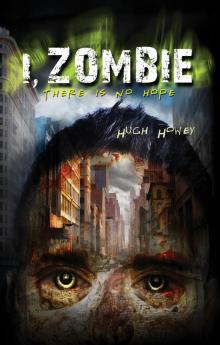 I, Zombie
I, Zombie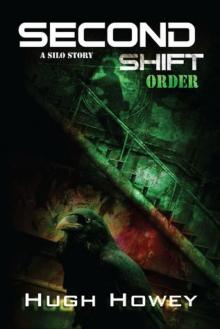 Second Shift: Order
Second Shift: Order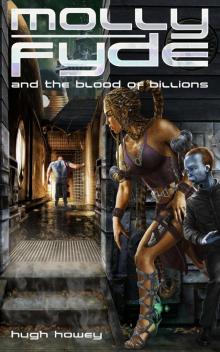 Molly Fyde and the Blood of Billions
Molly Fyde and the Blood of Billions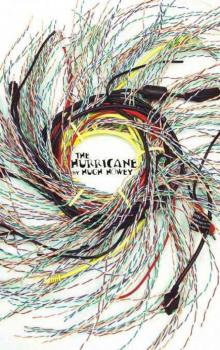 The Hurricane
The Hurricane The Box
The Box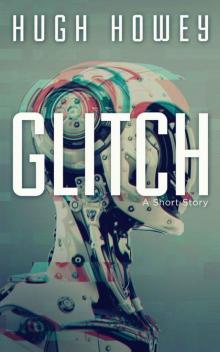 Glitch_A Short Story
Glitch_A Short Story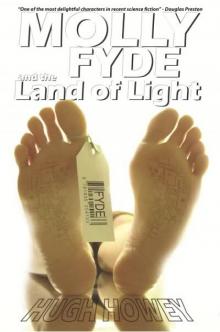 Molly Fyde and the Land of Light tbs-2
Molly Fyde and the Land of Light tbs-2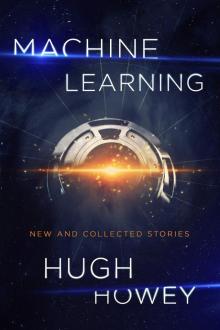 Machine Learning
Machine Learning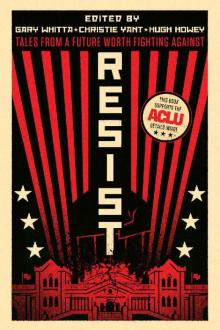 Resist
Resist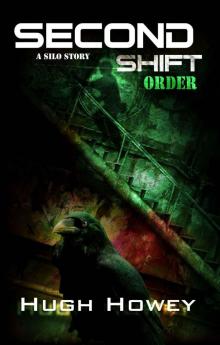 Second Shift - Order (Part 7 of the Silo Series) (Wool)
Second Shift - Order (Part 7 of the Silo Series) (Wool)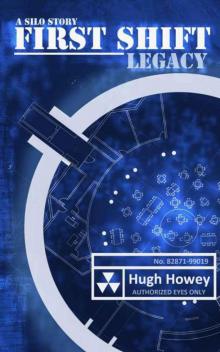 First Shift - Legacy s-1
First Shift - Legacy s-1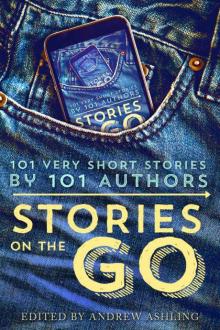 Stories on the Go: 101 Very Short Stories by 101 Authors
Stories on the Go: 101 Very Short Stories by 101 Authors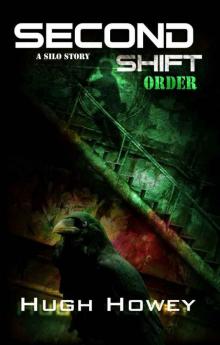 Second Shift - Order s-2
Second Shift - Order s-2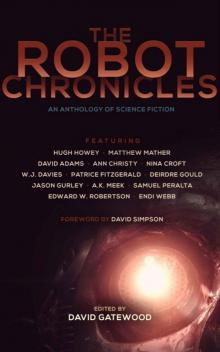 The Robot Chronicles
The Robot Chronicles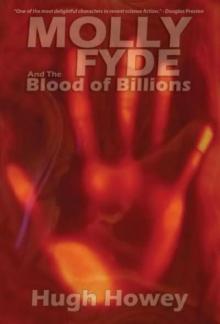 Molly Fyde and the Blood of Billions tbs-3
Molly Fyde and the Blood of Billions tbs-3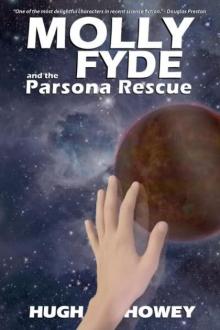 Molly Fyde and the Parsona Rescue tbs-1
Molly Fyde and the Parsona Rescue tbs-1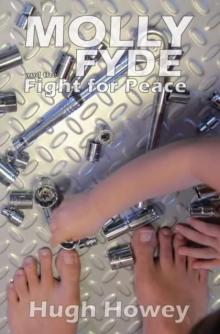 Molly Fyde and the Fight for Peace tbs-4
Molly Fyde and the Fight for Peace tbs-4 Sand
Sand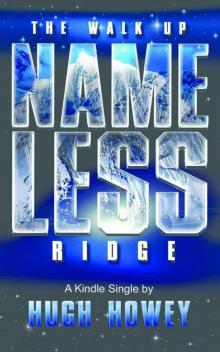 The Walk Up Nameless Ridge (Kindle Single)
The Walk Up Nameless Ridge (Kindle Single) Wool Omnibus Edition (Wool 1 - 5)
Wool Omnibus Edition (Wool 1 - 5)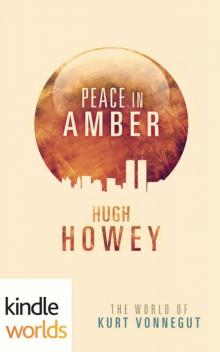 The World of Kurt Vonnegut: Peace in Amber
The World of Kurt Vonnegut: Peace in Amber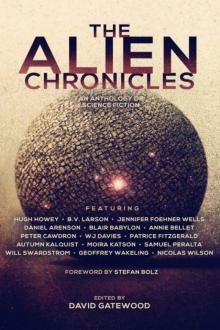 The Alien Chronicles
The Alien Chronicles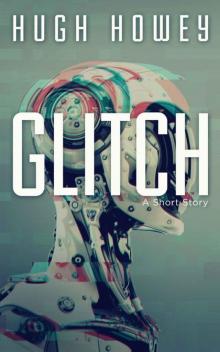 Glitch: A Short Story (Kindle Single)
Glitch: A Short Story (Kindle Single)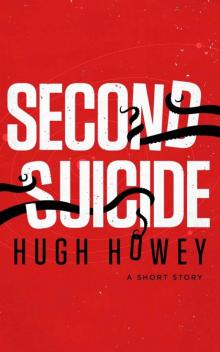 Second Suicide: A Short Story (Kindle Single)
Second Suicide: A Short Story (Kindle Single)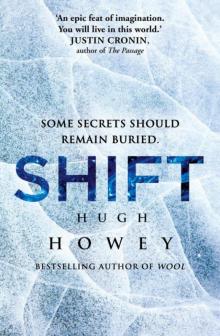 Shift (silo)
Shift (silo)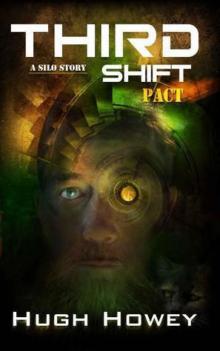 Third Shift - Pact
Third Shift - Pact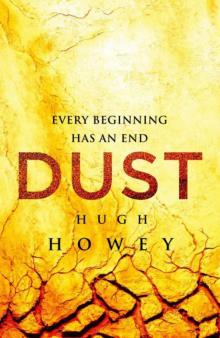 Dust s-9
Dust s-9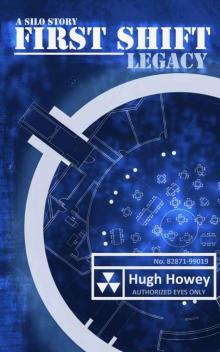 First Shift - Legacy (Part 6 of the Silo Series) (Wool)
First Shift - Legacy (Part 6 of the Silo Series) (Wool)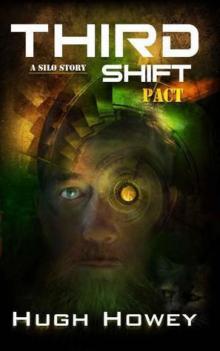 Third Shift - Pact s-3
Third Shift - Pact s-3 Sand: Omnibus Edition
Sand: Omnibus Edition The Box: A Short Story
The Box: A Short Story